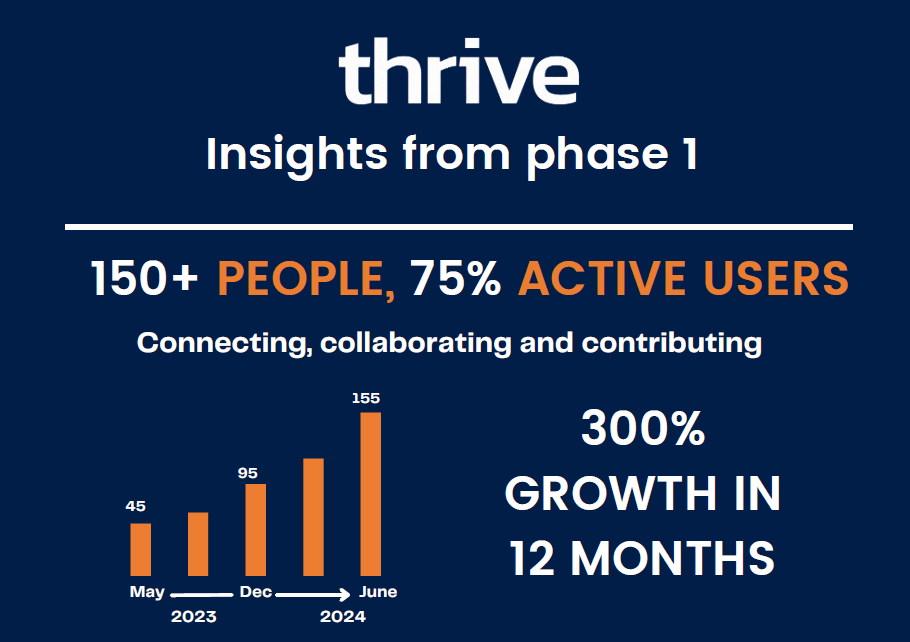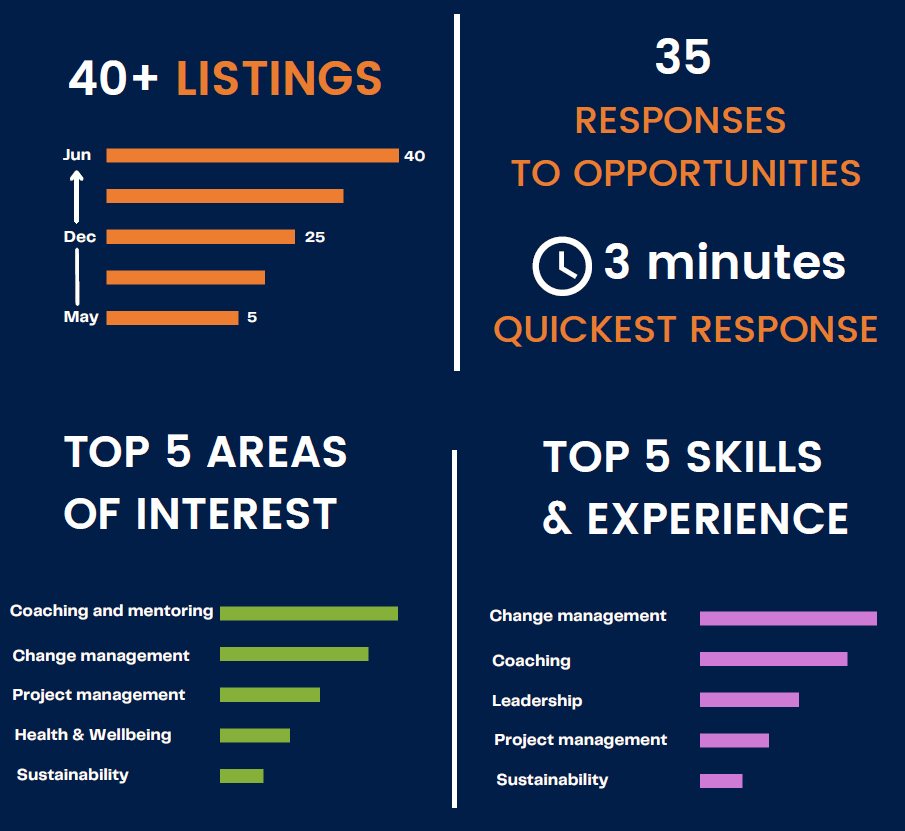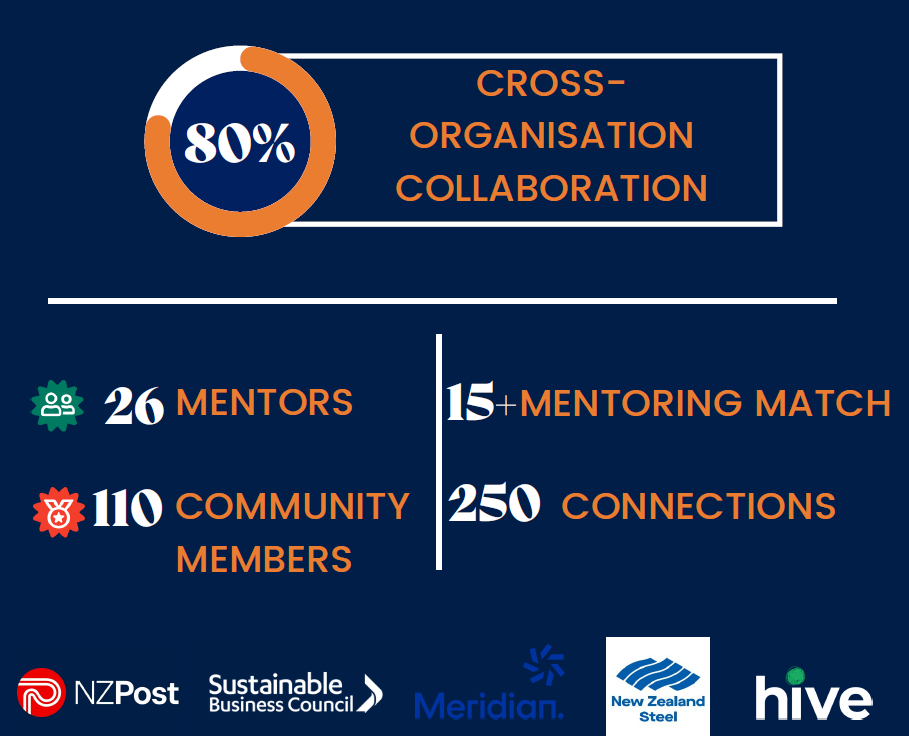Workforce disruption is a huge, growing challenge to tackle.
From talent shortages to the impacts of hybrid working, from technology shifts such as AI to making sure there is equality of opportunities as we transition to net zero so that ‘no one is left behind’ – many businesses are facing the same massive challenges, and it’s difficult to address them in isolation.
Global analysis shows that 80% of the skills required in the short-to-medium term to achieve net-zero emissions by 2050 already exist in the workforce. The inference being that most current workers are likely to require upskilling (i.e., on-the-job training), rather than complete retraining (i.e., obtaining a new qualification) to remain in their current job type or to gain a new job due to decarbonisation. In essence, skills offer pathways and opportunity in transition.
THRIVE Pilot – a small step with huge ambition
Over the last 12 months SBC, Meridian, NZ Post and FutureWork Studio have been working in partnership to engage, support and equip their workforces to thrive in the changing world of work.
This article brings together the results of that partnership, our key learnings, and the opportunities this provides business going forward including the potential for scaling to create greater value and impact.
It all started with a few questions:
- Could collaboration help SBC members to be better at leveraging their existing talent and capability together?
- Are businesses doing enough to retain and develop capability across the New Zealand workforce (not just within each individual companies)?
- Can we work together to build a transformational approach for developing future-ready skills and workforces that can adapt to disruptions, including transitioning to net zero, while ensuring that no one is left behind?
- How can we better prepare for and recover from a crisis like Covid-19?
It made more sense for SBC members to tackle these questions as a group, because:
- The challenges associated with the ‘future of work’ are common to all.
- It is more effective to work together on issues and their solutions.
- Running a pilot as a ‘group’ provides a much larger and diverse test-bed for piloting emerging technology and new ways of working – providing richer and more robust data which could be learned from
- Direct investment is significantly lower than if we were to work individually.
- It offered the opportunity to deliver a greater impact than can be achieved by any one business alone.
We joined to be part of a community and ecosystem where we can share our skills, knowledge and experience with others and learn from them in return. We hope to have up and running a number of mentors and mentees to empower our people to expand their skillset, mindset and knowledge. We’re keen to skill our people up in modern thinking and to learn from others as we go”.
Lee Millen, Head of People Strategy and OD at Meridian
Our approach
Representing over 275,000 workers, SBC member businesses have immense potential for transformation. To get there, we deliberatively started small, to first stress test the viability of an ‘ecosystem culture’, building on insights and adapting to learned lessons.
During the first six months of the pilot, our focus was on using the THRIVE platform to provide participants the ability to activate mentoring, connections and shared events/communities within the ecosystem for agreed employees. In turn, this supported the organisation’s development priorities and Employer Value Proposition.
In less than three months, the momentum of ‘democratising opportunity’ was already visible, with 80 active users (ranging from executives to frontline workers) utilising the THRIVE platform. Among the ‘early adopters’, 28 registered as mentors, with seven active mentoring relationships. Additionally, three ‘special interest’ community groups were formed, focusing on Neurodiversity, Te Ao Māori, and IT skills.
This helped us to start building the readiness, connections and networks to unlock opportunities in Phase 2 for transformation such as skills pipelines, career pathways and shared talent pooling both within and across the participating organisations.
We used the insights and learnings from phase 1 to develop a shared action agenda for phase 2. A critical learning by the group was the importance of ‘readiness’ and ‘flexing’ in a changing operating environment. Who would’ve forecasted a recession, rising inflation and a change of government?!?! As a result, the group made a deliberate decision not to broaden the scope of the pilot in phase 2 but double-down on three priorities within the businesses individually and not as an ecosystem to:
- create cross-organisational visibility of current and future skills via coffee connect;
- improve utilisation of skills, knowledge and experience by connecting people with broader opportunities within organisations; and
- build capability and close skills gaps through active P2P mentorships and mentor-mentee relationships.
Our impact
Here’s a breakdown of where the pilot is at so far and what participants have achieved:
- 150+ employees are connecting, collaborating, and sharing resources from across the four participating organisations.
- We have seen a 300 % growth in activity across the online community over 12 months.
- We have established a growing mentor-mentee programme with 26 mentors now registered and 15+ mentorships already live.
- Communities of practices were also set up for Just transition planning, neurodiversity, employee experience, sustainability, and Te Ao Māori with 110 members.
- We’ve had more than 250 connections made through Coffee Connect, matching people for a coffee to expand their network.
| Overall, the five top areas of interest have been: 1. Coaching and mentoring 2. Change management 3. Project management 4. Health and wellbeing 5. Sustainability | The top skills/experiences shared across the community have been: 1. Change management 2. Coaching 3. Leadership 4. Project management 5. Sustainability |



What does this mean for businesses?
What this tells us is that there is a good match between the skills needed and the collective skills shared and available across the ecosystem. So when someone shares an opportunity for collaboration or someone asks for help or guidance, 96% of the time there was someone else with the relevant knowledge, skills or expertise that was found within an hour and as quick as 3 minutes for some. And that opportunity is being harnessed already, with 80% of the activity across the community being cross-organisational collaboration. The ROI for businesses was significant, with mentoring alone delivering 5x the investment.
Where to from here?
The pilot was in place for 12 months initially and has been a success. We now have an opportunity to expand the scale to a wider pool. What we have seen is that individuals within participating organisations really leverage the platform to connect, develop and learn from each other.
Organisations are going through different phases of maturity and we are looking for the next group of businesses that want to join THRIVE 2.0 – which would launch (based on interests) later this year. Our core focus will be development through mentoring and connection through communities of practices.

